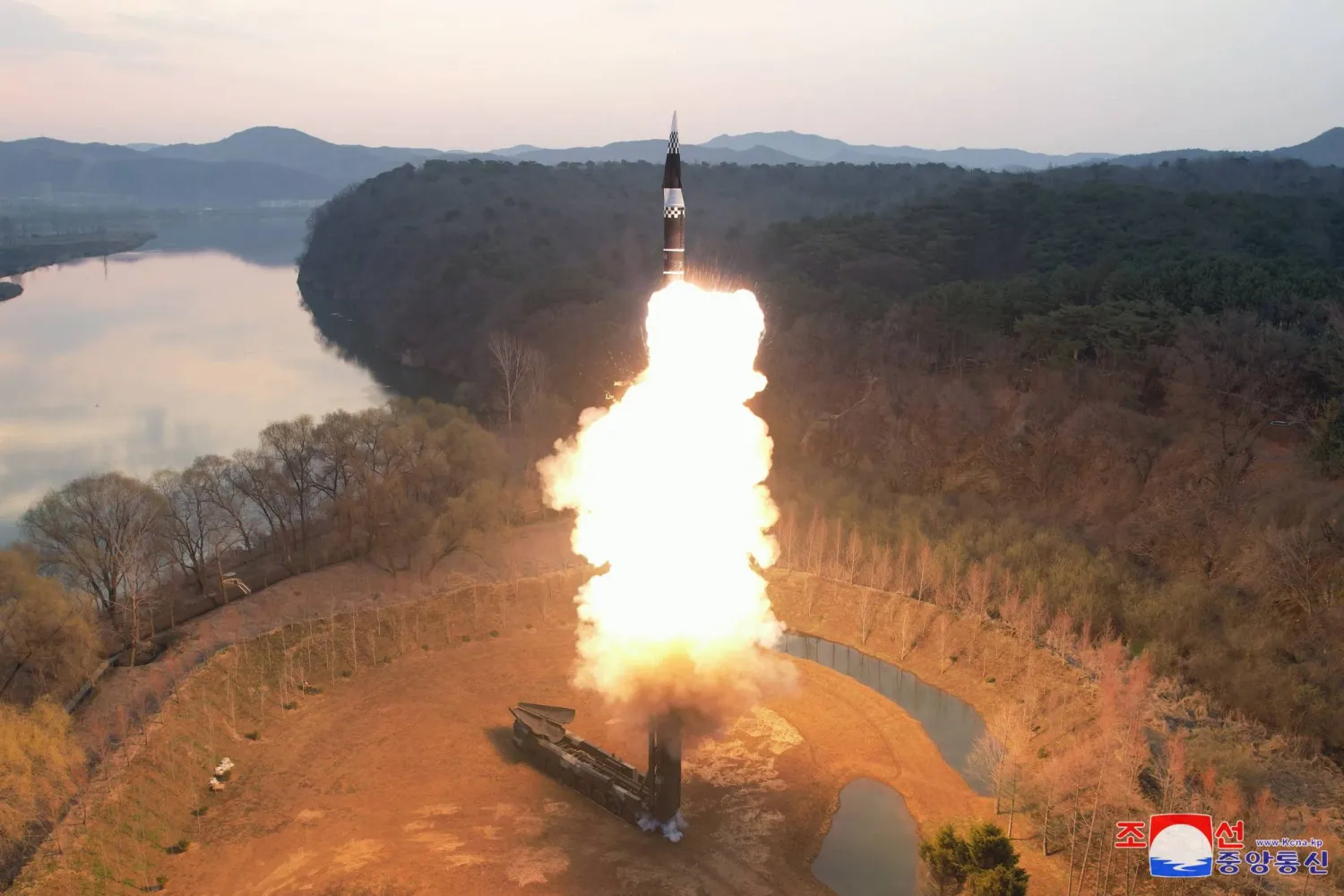North Korea said Wednesday it had tested a new hypersonic intermediate-range missile powered with solid propellants, extending a run in weapons demonstrations that’s deepening a nuclear standoff with neighbors and the United States.
With the supposed success of the test, North Korean leader Kim Jong Un declared his country had acquired the ability to build solid-fuel, nuclear-capable systems for missiles of all ranges as he pursues an arsenal that could viably threaten rivals in Asia and the United States.
The report by North Korean state media came a day after the South Korean and Japanese militaries detected the North launching a missile from near its capital toward its eastern sea.
North Korean state media said the test was supervised by Kim, who described the Hwasong-16B missile as a key piece of his nuclear war deterrent he vowed to further build up to counter his “enemies,” a reference to the United States, South Korea and Japan.
Kim said the North has now developed nuclear-capable, solid-fuel systems for “all the tactical, operational and strategic missiles with various ranges,” the Korean Central News Agency said.
In recent years, North Korea has been focusing on developing more weapons with built-in solid propellants. According to The Associated Press, those weapons are easier to move and hide and can be made to launch quicker than liquid-propellant missiles, which need to be fueled before launch and cannot stay fueled for long periods of time.
North Korea last year tested a solid-fuel intercontinental ballistic missile for the first time, adding to its arsenal of long-range weapons targeting the US mainland. The country also has an extensive lineup of short-range and mid-range solid-fuel missiles that can be fired from land vehicles, ships and submarines and are potentially capable of reaching targets throughout South Korea and Japan. The North in recent months demonstrated some of these missiles in drills it described as simulated nuclear strikes while issuing provocative threats of nuclear conflict.









